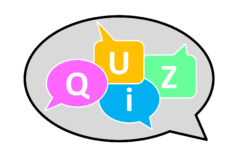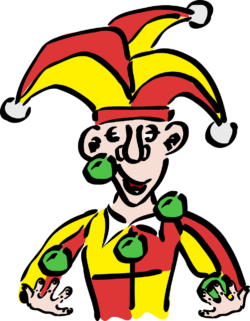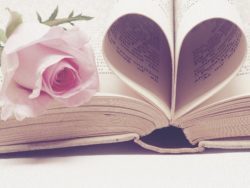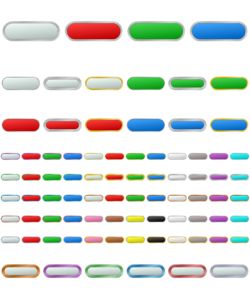Arlene Miller's Blog, page 30
April 10, 2020
Stay Safe: Stories from the Pandemic – 2
 Image by Sumanley xulx from Pixabay
Image by Sumanley xulx from PixabayStill hunkering down, I hope….unless you are one of the heroes who needs to out and work with the public (thank you). Here are more stories from the pandemic. Enjoy!
Good to Go
Except for the surgery, I have spent the last five weeks in isolation. Larder getting bare. Contacted two grocery stores to order groceries for pickup, so that I wouldn’t have to go into the store and someone could put my groceries into my trunk. I didn’t want to lift anything because I am not supposed to lift anything over 8 pounds. First store could bag my list in seven days. Second store could bag my list in eight days. Decided against that. Michigan is going to be worse next week than it is now.
Had three prescriptions to pick up and so off I went to the grocery store. They had a spray bottle for customers to spray their carts. I sprayed my hands also. After gathering my stuff and loading it into the trunk, I wiped down the handles, steering wheel, etc., with Clorox Wipes. Travel with those now.
Drove into the garage, shut the door, and stripped. I put everything that I was wearing into the washing machine. Got dressed and unloaded the trunk. I wiped down every article that I had bought before I put it away. Then I wiped the garage stuff that I had touched — door handles, etc. Then I wiped down everything that I had touched in the house.
I am good to go! I can spend another five weeks in isolation.
If I get the virus, I will know that I tried to avoid it.
Love to all my family members and friends. See you in the summer,
Mom/Carol
– Carol, Kalamazoo, Michigan
********************************
New Numbers
Math was not my major, but now numbers have become hyper- relevant to me. It’s no longer Four and Twenty Blackbirds. They’ve been replaced by the rules of Six and Twenty. I am in the over-60 risk group, so when I venture out for necessities, I’m tempted to wear a hoop skirt or carry a yardstick to help me estimate the six feet I need to put between me and anyone else. I’m tempted, but I don’t do it. I just repeat it over and over in my mind until it drills a hole in my brain. The same thing happens when I wash my hands with soap. I lather up well, and then, instead of singing Happy Birthday or any of the other suggestions that have been posted on Facebook, I merely count to twenty, feeling righteous and pious. The last relevant number for me these days is nineteen, (as in Covid-19). I pray that it and the other numbers will soon fade into disuse and remain a dim memory of the part of history others in the future will read about.
Evie, California
************************************************
We Still Need Books!
Here at Pro Audio Voices, we’re finding that authors are all the more in need of getting great stories and content out into the world to listeners who need resources and escapes. So we’re especially busy in this time of sheltering in place. Our team is spread across the globe, and I feel such gratitude and warmth for each of them — for the opportunity to see them via Zoom and to be a community. I feel like one of the best things we can do is to stay calm and be present for each other.
-Becky Parker Geist, California, Pro Audio Voices, Helping great stories come alive!
Audiobook Production & Marketing, President of Bay Area Independent Publishers Association
****************************************************
And We Still Need Music!
The first thing that happened was my gigs got canceled. Besides being my social outlet, gigs are a third of my income. Then schools got canceled, and I didn’t know if my teacher husband would get paid. All I had left were my trombone lessons. I messaged my students and gave them the option of lessons over FaceTime instead of coming to the music store, and every one of them opted for that. I wondered if they would just give up lessons for now? Would their parents continue to be able to afford lessons? I have never been so happy to see my students. All seven of them have been with me for years, and so we got to stare at each other and say how weird this all is. I realized in an instant what their parents were probably thinking. Lessons were one of the only links to their kids’ old schedule. Everything else was on hold. I think they were as happy to have me as I was to have them. My husband kept his salary for now, but getting to see my kids’ faces was worth more than the money I had been so worried about. Seeing their faces and keeping the music going is a commitment to the hope of being able to play in bands again in better times.
-Rae Rae, Petaluma, California, Professional Musician
**************************************************
Grateful
As a single 72-year-old woman living in a luxury condo building in Atlantic City with my two cats, I am feeling grateful that I have a comfortable home, supplies for at least two months, activities that keep me engaged, and no one with whom to argue. Yes, I have been deprived of teaching dance classes and making pottery in a community art center, but the real lesson is about preparation for adaptability and change. I am very happy to say that I am passing this test. And in the words of Rumi, “This too shall pass.”
Another thought: While in the shower this morning, I thought about how fortunate we are to have the internet. Think about what happens if that gets a virus that really keeps us isolated. And no Amazon or Netflix or YouTube. Hmmmm.
-Judith Lokitch, Atlantic City, New Jersey, Tap Dancer and Potter
*******************************************************
What About Graduation?
This is all a big change and many people are in much worse situations than I am. A big part of my small publishing company’s sales come from school author visits and other events, so all the cancelations are felt. But my product (books) is not perishable. While it’s hard right now, we will bounce back. On the personal side of things, my son is a senior in a performing arts high school, and the kids in his program are very close. The school closures were announced while they were on Spring Break, so their world turned upside down without any warning. Prom is canceled and graduation is doubtful, but what is tough is they are realizing they may never be together again as a group. Their final Pops Concert is a big deal for them. The seniors select the music, and it’s when they get their senior recognition. The Pops Concert means more to the kids than the graduation ceremony. It’s hard to see the kids miss out on it. When my son was a freshman, I remember thinking I’ll be a mess at his last Pops Concert, and now I’m a mess because it may never happen.
-Luana Mitten, Mom and Publisher, Tampa, Florida
****************************************************
Cruising Call to Shore
We’d been on the cruise for four days when eight Panamanian masked military men jumped off the tender and boarded our sailing ship. I was just stepping down from the ladder when they arrived. Pushing down the alarm that blared in my chest, I joined my nervous shipmates in the lobby. News of coronavirus filled the flat screen TV that hung in the hall. The captain’s voice came on the loudspeaker. “All passengers are to report to the Lounge.” And that’s when our vacation took an unexpected turn.
-Jeanne Jusaitis, children’s author, Petaluma, California
*******************************************************
Dressing for the Occasion
Even though the COVID-19 plague has many of us cocooned safely away at home, for some people, work continues online. For those whose professions require “virtual” meetings, here are a few useful tips:
If Time-Zone Follies require you to join a coast-to-coast meeting at “O Dark Thirty” and you haven’t yet managed to brush your teeth, save everyone from your Buffalo Breath by sitting at least two meters (six feet) from the microphone.
If it’s the kitchen that serves as your home office and you want your computer mouse to remain in good working order throughout the meeting, be sure to move the peanut butter, honey and ketchup off the table. And pull the photos of you and your buddies in goofy party hats off the fridge door.
Did you set up the man cave as your work-from-home hideaway? Don’t forget to remove the Playboy calendar from the wall behind your chair.
Is the bedroom doubling as your home office? Get that pile of laundry out of sight and for God’s sake make sure there’s no bra or panties left carelessly dangling from the handles of your Bowflex.
If your computer’s built-in camera catches a field of view wide enough to include the area behind your chair — you know, the one your spouse routinely passes through en déshabillé — the moment you hear said spouse starting to shuffle past, draw attention away from the embarrassing visual by leaning forward and loudly blowing your nose.
If you have small children or elderly parents living with you and, as a consequence, have rigged the entire house with an intercom or baby monitors, be sure to mute the one in the privvy for the duration of the meeting. After all, you wouldn’t want to broadcast bathroom audio [turn up the sound here, if you dare] to your entire audience.
Dressing for the occasion — best practices:
If your shirt is decorated with last night’s spaghetti sauce, undo the top four buttons and entertain everybody instead with a view of your hairy chest.
Anyone over 60 who sleeps in their birthday suit and thinks ZOOM is an invitation to “come as you are” is excused from the meeting.
Stay safe! Stay healthy! And don’t lose your sense of humor!
-Howard Daniel, Professional Writer, Santa Rosa, California
If you would like to read more of Howard Daniel’s great pandemic blog posts, click here!
******************************************************************
1. We will be getting back to grammar next week. I have been watching a lot of news lately (not too different than usual, if you know me!), and the grammar goofs make me crazy! More about that next week!
2. Idea for a new blog post: What are you doing to keep busy during sheltering in place? Working at home? Taking an online class? Reading more? Eating more? Taking up a new hobby? Cleaning out your closets? Unable to do much of anything? Please shoot me an e-mail with what you have been doing (not a comment on this blog please) to bigwords101@yahoo.com
Stay home and be well!
April 3, 2020
Stay Safe: Stories from the Pandemic – 1
I loved your stories about what you are doing and thinking about in this unusual time. I have printed six of them today and will print the remainder of them next week. Please, if you have a story to share with my readers (a paragraph will do), send it along to me at bigwords101@yahoo.com. We want to read it!
********************************
The Show Can’t Go On
Being in the entertainment industry, I was one of the first to be affected by the regulations set forth during the Corona Virus, or Covid-19, pandemic. When I first heard about the virus, since I didn’t really watch the news, I wasn’t too bothered by it. There were some new regulations our company enacted to help keep our performers safer, like disinfecting the costumes and having hand sanitizer more available backstage. But, within a week or two, I went from being unbothered, to my life coming to a crashing halt. I was touring with Disney on Ice and we were in Southaven, Mississippi, when the NBA canceled their season. We knew we would be next. Sure enough, our tour — and all touring units of Disney on Ice — were canceled for the foreseeable future.
I was numb. I knew it had to be something big to cancel the entire tour. We were known for never canceling even one performance. Even as we wrapped up our tour that last day, the virus didn’t really change how I interacted with the people around me. We were such a close group that “social distancing” was too little too late. But when I flew home — seeing the airport empty — I think that’s when it really hit me. Since then, I have changed the way I do things. I wash my hands constantly and only leave the house when essential. During these last few weeks I went from being in a different city every week — being in contact with likely thousands of people — to being home with my Husband, Mom and dog. And, not only stuck at home — but unemployed and cut off of my health insurance as of the end of the month. I try to look for the silver linings as well as what the world is learning at a time like this. This is what I am paying attention to now: companies that are paying their employees even if they can’t work, states/countries making the right choices, who is helping by making masks and contributing to good causes. It is a weird time and the unknown is scary, but I am doing my best to try and stay positive by looking for the good in people and using this isolation time wisely.
-Shelley Bindon, Entertainment Industry
***********************************
From a Retired Nurse
We have been sheltered in place for 13 days. It really hasn’t been too bad since I am retired from nursing. But Jim’s legal deposition video business has come to a halt. And the stock market collapse has caused worry.
But the fear of the unknown with this Covid-19 Is overwhelming! We haven’t gone to the store, but plan to Tuesday at 5:30 a.m. using all the recommended precautions: unpacking the groceries like a nurse or doctor would do a sterile dressing change.
But my grief is the fear for all the front-line folks who are out there serving us and making our lives safe and easier. My heart goes out to the medical field with all their shortages. I feel bad that I am not there by their sides, but I know it would be so hard for me; it was a challenge on the best of days caring for patients. Throwing this Covid disaster in there would be frightening as well as exhausting. So far we stay in and cook. Trying new things. We walk the dogs daily in our neighborhood. Watch a lot of TV. Jim does puzzles, and I do chores and Facebook. Still haven’t gotten into home projects. Just not into it.
But it is what it is. Making the best of it. I am trying not to overreact to media. I am also trying not to judge people harshly for their actions. We want this to be over. In the meantime I will enjoy Facebook games, looking for teddy bears in neighborhood windows, watching Colbert, Kimmel, and Fallon. Also watching and sharing the funny Covid-19 spoofs about toilet paper, and a gal protecting herself using a peripad as a mask. Be safe all 
-Edie Partridge, Retired Nurse
***************************
Helping Out the Elderly
I not only work at Marin Villages, where I get a salary, but I also am a volunteer. On Friday I picked up groceries and delivered them to a low-income member. I, of course, used a mask and gloves and social distanced from her to keep both of us safe. She (let’s call her Sue, to protect her identity) was so appreciative that she started to cry. Then she told me that she has breast cancer and she cannot get her required surgery right now because her doctor does not want her to be in the hospital and possibly be exposed to COVID-19. We both then cried again. It is so heartwarming to be able to help older adults during this time, and they are very appreciative.
-Diane Castro, Novato, CA
************************
A Spiritual Community
When the spiritual leaders of All Paths to God arranged in lieu of our Sunday morning worship to ‘gather together’ every day through prayer at noon, I knew I’d participate. With all the influences shaping my world, I saw this gathering as a way to ‘connect’ to Source and take time to bring our common voices together as one. For me, prayer has always been a singular and private experience. Except for the one hour on Sunday morning when our congregation gathers for worship, I’ve always chosen to pray in my own way at no specific time. After two weeks of this daily commitment, I’m finding this set-aside time shapes the remainder of the day. I can actually feel comfort from 12-12:30. There is a knowingness that I am not alone, that I have community for sharing, for caring, and for support. Yes, like all of us, I am very worried about the vulnerability of my family and friends, of the risk responders who are at every moment the heart and soul of this country. I, too, see the numbers, listen to the news, and feel the pain that so many of our fellow travelers are experiencing. For me, it’s challenging to remain strong, to believe that the situation will eventually improve, and we will return to normalcy. It’s challenging to look into the unknown future and wrap myself around the numbers who have died, who have been financially ruined –and think that our collective noontime prayer will make a difference. In all of this, I will remain diligent. I will do my part to spread love. I will do my part to trust God. I will do my part to believe that the solidarity and will of the inhabitants of this great country will come together as they have under so many other challenging times and be stronger than ever.
So, I pray and trust that my prayers for well-being-for-all will be answered.
-Bonnie Ross-Parker, Author
*********************************
Fun with Grandchildren
First and foremost, stay safe and healthy, Arlene, and ohhh don’t mind my grammar or punctuation 
March 27, 2020
Let’s Talk About Last Week’s Quiz
 Image by Mariana Anatoneag from Pixabay
Image by Mariana Anatoneag from PixabayLast week we had a quiz about some often confused (no, not by you!) words. The answers were provided, so here is a little discussion on why the answers are what they are:
Hold tightly onto the (reigns, reins), or you will be thrown off the horse!
There are three words pronounced the same way. Rain, which is weather and a noun or verb; reign, which means to rule (verb), but can often be used as a noun: the King’s reign. Then there are the pieces of leather on the horse: rein.
Do you know the (principle, principal) rules of chess?
Did you get this one, my trick question? There are four words that sound the same, and three of them are spelled the same. Principal can be money, like your mortgage principal. Principal is also the person who runs the school. Principal also means primary or most important (adjective) or the most important one (noun). Principle means a rule or ethic. In the question, I already have the word rule, so principal is describing the rules as the most important ones, thus spelled principal.
Children’s pajamas are always (inflammable, nonflammable).
Tricky one here. Flammable and inflammable mean the same thing: able to catch fire. It is only nonflammable that means the opposite.
She lives a little (farther, further) down the street than you do.
Farther refers to distance. Further means any longer: I don’t want to discuss this further. Sometimes there is truly a fine line between them.
I made an (illusion, allusion, elusion) to Shakespeare in my speech.
Although elude is a word (to avoid or escape the attention of), elusion is not. An illusion is something that isn’t there (and illuse is not a word). Allude is a verb and allusion the noun, meaning a reference to something.
She always seems to be (averse, adverse) to our plans.
These words are both adjectives. Averse is being against or opposed to something. Adverse means unfortunate: These are definitely adverse weather conditions for sailing.
She said, “(All right, Alright), I will go with you.
No matter what the sentence is, the answer is all right. Alright as one word is slang and has the same meaning.
The (number, amount) of students has increased in the past year.
This pair of confused words is the cousin of less and fewer. Amount is used with things that cannot be counted or singulars. Number is used for plurals and things that can be counted: The amount of traffic has increased. The number of cars has increased.
I have a new pair of (canvas, canvass) sneakers.
While you might wear your canvas shoes when you canvass, canvass means to solicit sales or answers to a survey, etc., in a neighborhood.
Do they even sell (stationery, stationary) to write letters on?
Stationary is the one related to place. Both stationary and place have a’s. Stationery is used to write letters. Stationery and letter have e‘s.
I (shined, shone) my shoes yesterday.
Both answers are okay, but shined is preferred when there is a direct object. I shined my shoes as the sun shone.
The sun (shined, shone) all day yesterday.
See above.
He is the (soul, sole) person in the room who is over 30.
Soul means that part of you that is not your body. The other soles are all spelled the same way: the only, the fish, and the bottom of your foot.
Are you (supposed to, suppose to) sign in first?
Suppose to is incorrect. The correct modal verb phrase is supposed to.
Did you get a (warrantee, warranty) with your new television?
Warranty is the paper. Warrantee is the person who gets it.
(Whoever, Who ever) even goes to gym these days?
Whoever is some person. If you can put a word between who and ever and it makes sense, they are separate words: Who on earth ever does that any longer.
I will give the last muffin to (whoever, whomever) asks for it.
If there was any answer you missed, I bet it was this one. It looks as if the answer should be whomever, as it comes after the preposition to. However, it is not the object of to; it is the subject of the noun phrase whoever asks for it. Every verb in a sentence needs a subject (unless it is a command, where the subject might be implied). What is the subject of asks? Must be whoever. Whomever is used as an object, not a subject.
I feel (bad, badly) about losing the contest.
I know. Lots of people want to say badly, but bad is the correct answer. Feel is a linking, or sensory, verb here. It connects I and bad. Such verbs take adjectives, not adverbs. Badly is an adverb, and adverbs are used with action verbs: I sew badly. So if you use feel as an action verb here (which it can sometimes be), I feel badly means that your fingertips aren’t doing a good job
I plan to publish a (semimonthly, bimonthly) newsletter that comes out the first and third weeks of every month.
If you are publishing two times a month, as the sentence says, it is semimonthly. Bimonthly usually refers to once every two months, although many people do use it to refer to twice a month.
The (peddles, pedals) on this bicycle don’t work correctly.
You might pedal around town peddling magazines, but the things on your bike are pedals.
Please come visit me in my new house (sometime, some time).
Sometime is some future time. Some time means an amount of time: Do you have some time to help me?
If you go (towards, toward) the library, you will get to the new school.
Either answer is fine. The Americans usually leave off the s. The British use the s.
He paid only a small fine for his (venal, venial) traffic offense of parking in the space for too long.
I am quite sure I have never used either of these words. Venial means able to be forgiven, minor. Venal means able to be bought off: The venal judge was removed from the bench after taking bribes.
If you think I am going to clean up that mess you have another (think, thing) coming.
Surprisingly (at least to me), the correct phrase is another think coming.
(By and large, By in large), this is a great book.
The correct phrase is by and large, although some people say by in large, or at least it sounds that way, probably because that is what they heard when someone said it.
She has (deep seated, deep seeded) religious beliefs.
They sit deeply somewhere, but not in the garden. They are seated. This idiom means firmly established.
TWO SUPER-IMPORTANT ANNOUNCEMENTS
1 If you are sitting there at home these days, you might want a grammar book. If you do, and you like e-books, you can get any of my books on Kindle or any other e-reader. But now you can also get most of my e-books on my website and pay with Paypal. That will lead you to my store on Payhip. Use either of these links:
2 I know some of you are writers and some not. I know some of you live in the United States and some not. I would love to do a blog post of pandemic stories: what is the situation where you are, and what are you doing? Anything special going on? How are you filling your time? Whom are you with? Anything…please make the stories short – a paragraph is fine. If I get enough I will write a post next week, so get them to me by Thursday. Don’t worry if they are not literary masterpieces; I will edit anything glaring. Please e-mail your stories to bigwords101@yahoo.com (please do NOT write your story in the comments section of the blog). Put this in the subject field: Story for Blog. Thank you!!!
Stay well!!!!!!!!!
March 19, 2020
A Little “Which Word” Quiz For You!
If you are getting bored at home — or even if you aren’t — here is a little word usage quiz for you. Scroll down to find the answers:
Hold rightly onto the (reigns, reins), or you will be thrown off the horse!
Do you know the (principle, principal) rules of chess?
 Image by Tumisu from Pixabay
Image by Tumisu from PixabayChildren’s pajamas are always (inflammable, nonflammable).
She lives a little (farther, further) down the street than you do.
I made an (illusion, allusion, elusion) to Shakespeare in my speech.
She always seems to be (averse, adverse) to our plans.
She said, “(All right, Alright), I will go with you.
The (number, amount) of students has increased in the past year.
I have a new pair of (canvas, canvass) sneakers.
Do they even sell (stationery, stationary) to write letters on?
I (shined, shone) my shoes yesterday.
The sun (shined, shone) all day yesterday.
He is the (soul, sole) person in the room who is over 30.
Are you (supposed to, suppose to) sign in first?
Did you get a (warrantee, warranty) with your new television?
(Whoever, Who ever) even goes to gym these days?
I will give the last muffin to (whoever, whomever) asks for it.
I feel (bad, badly) about losing the contest.
I plan to publish a (semimonthly, bimonthly) newsletter that comes out the first and third weeks of every month.
The (peddles, pedals) on this bicycle don’t work correctly.
Please come visit my in my new house (sometime, some time).
If you go (towards, toward) the library, you will get to the new school.
He paid only a small fine for his (venal, venial) traffic offense of parking in the space for too long.
If you think I am going to clean up that mess you have another (think, thing) coming.
(By and large, By in large), this is a great book.
She has (deep seated, deep seeded) religious beliefs.
Scroll down for the answers:
Keep scrolling…
Keep scrolling ….
Hold rightly onto the reins or you will be thrown off the horse!
Do you know the principal rules of chess?
Children’s pajamas are always nonflammable.
She lives a little farther down the street than you do.
I made an allusion to Shakespeare in my speech.
She always seems to be averse to our plans.
She said, “All right, I will go with you.”
The number of students has increased in the past year.
I have a new pair of canvas sneakers.
Do they even sell stationery to write letters on?
I shined my shoes yesterday.
The sun shone all day yesterday.
He is the sole person in the room who is over 30.
Are you supposed to sign in first?
Did you get a warranty with your new television?
Who ever even goes to that gym these days?
I will give the last muffin to whoever asks for it.
I feel bad about losing the contest.
I plan to publish a semimonthly newsletter that comes out the first and third weeks of every month.
The pedals on this bicycle don’t work correctly.
Please come visit my in my new house sometime.
If you go toward the library, you will get to the new school.
He paid only a small fine for his venial traffic offense of parking in the space for too long.
If you think I am going to clean up that mess you have another think coming.
By and large this is a great book.
She has deep seated religious beliefs.
We will discuss the answers next week. A couple of the answers are preferred, but both choices would have been correct.
Stay Well! Stay Home!
March 13, 2020
I Think We All Need Some Humor (Humour)
 Image by Clker-Free-Vector-Images from Pixabay
Image by Clker-Free-Vector-Images from PixabayThings have gotten pretty serious over the past week. I thought you might appreciate a little humor. Some of these you may have seen before, but others are likely to be new. Apparently, these are actual signs, headlines, ads, etc. Enjoy! (P.S. All typos are theirs!)
Students Cook and Serve Grandparents (headline)
Manure woman requires work. Not to heavy, 20+ hours per week (ad)
County Spelling Bee Postoned One More Time (headline)
Statistics Show That Teen Pregnancy Drops Off Significantly After Age 25 (headline)
Want to Spell Like a Champ? Read Wenster’s Dictionary (ad)
Midget Sues Grocer, Cites Belittling Remarks (politically incorrect headline – sorry)
Honey mustard chicken diapers with dipping sauce (menu item)
School Suplies (sign)
Employees must wash hands before living (sign)
One in For Kids Drops Out of High School (headline – and they work for this newspaper!)
One-Armed Man Applauds the Kindness of Strangers (headline – wrong word choice!)
Man Accused of Killing Lawyer Receives a New Attorney (headline)
Imagine More Snacks Than You Can Imagine (ad)
Bishops Agree Sex Abuse Rules (headline)
Child Care Provider. Apply in person, Jack and Kill Childcare (want ad)
Students Get First Hand Job Experience (headline – hyphens are important!)
Marijuana Issue Sent to Joint Committee (headline)
Tables are for eating customers only: No loitering (sign)
No Pubic Restroom (sign)
Correction: A headline on an item of the Enquirer Bulletin incorrectly states “Stolen Groceries.” It should have read “Homicide.” (newspaper correction – HUH??)
So Fun, They Won’t Even Know Their Learning (ad)
It Takes Many Ingredients to Make Burger King Great, but “Our secret ingredient is our people.” (ad)
Violators will be towed and find $50 (promise?)
Stay Well and Stay Calm
March 5, 2020
British Versus American English, Part 2
 Image by Free-Photos from Pixabay
Image by Free-Photos from PixabayLast week, in Part 1 of this two-part series, we talked about how British and American English sometime use different words to mean the same thing. There are other differences between British and American English, although they are not major: grammar, punctuation, and spelling.
Grammar
Collective nouns refer to a group even though they can be singular: audience, band, team, class, family, etc.
As I researched this post, I read that in American English, collective nouns are singular. For example, band refers to a group of musicians, team refers to a group of athletes. Americans would say, “The band is good,” thus using a singular verb.
But in British English, collective nouns can be singular or plural. You might hear someone from Britain say, “The band are playing tonight” or “The band is playing tonight.”
I have always been taught the British way, although most people do not make the distinction. In my mind (and in my books) collective nouns can be either singular or plural depending on what you mean. If you are talking about the group as a unit, you use a singular verb. If you are talking about the individuals in the group, you use a plural verb: The band is having a party after the concert. The band are tuning their instruments.
Auxiliary verbs, also known as helping verbs, are verbs that generally change the tense of a verb. Brits often use shall to express the future. Americans rarely use it in conversation because it seems too formal. Americans usually say “I will go home now.” However, shall does have a distinct meaning in American legal language. Also, I always learned that shall is used for first person, and will for second and third person. But if you want to emphasize the verb, you use will for first person, and shall for second and third, switching them up: I will go! You shall go!
Past tense verb forms also sometimes differ between British and American English. British English, for some verbs, uses a -t rather than –ed. The past tense of of learn in American English is learned. British English uses either learned or learnt. The same is true of dreamed and dreamt, burned and burnt, leaned and learnt.
Americans generally use the present perfect tense (have/has) less frequently than the British.
I am tired; I didn’t get enough sleep (American)
I am tired. I haven’t gotten enough sleep. (British)
Prepositions, or lack thereof, can also differ between American and British English. The British prefer at the weekend; Americans say on the weekend. Americans say in the hospital, but the British say in hospital.
Punctuation
There is one major difference between British and American punctuation. In British English, the period and comma are placed outside quotation marks unless the period or comma is part of the quote itself. In American English, periods and commas are always placed inside quotation marks.
British: She said,”I am going to the mall”.
American: She said, “I am going to the mall.”
Spelling
Americans end words in -or that British end in -our: colour/color, humour/ humor, flavour/flavor, neighbour/neighbor
Verbs in British English that end with either -ize or -ise end with ize in American English: recognise/recognize, organise/organize
Verbs that end in –yse in British English end in –yze in American English: analyse/analyze, paralyse/paralyze
Verbs that end in a vowel followed by l double the l in British English, but not in American English: travelled/traveled, cancelling/canceling
British English words spelled with the double vowels ae or oe are spelled with just an e in American English: manoeuver/maneuver, paediatric/pediatric
Some nouns that end with ence in British English are spelled ense in American English: licence/license, defence/defense
Some nouns that end with ogue in British English sometimes are ended with just og in American English: catalogue/catalog, dialogue/dialog
February 28, 2020
British Versus American English, Part 1
 Image by ErikaWittlieb from Pixabay
Image by ErikaWittlieb from PixabayIt’s all the same language, but it’s different – American versus British English. And the British did have it first. The differences between American and British English are pretty minor, though. An American can understand someone speaking British English – except maybe for the accent!
The differences between American English and British English show up in three ways: 1. Some words are spelled differently. 2. There are a few punctuation and grammar rules that differ. 3. Some words are different between American English and British English, but they mean the same thing. Most words, however, are spelled the same in both British and American English. And most grammar and punctuation rules are the same. And most of the words are the same.
Next week we will concentrate on the minor spelling, grammar, and punctuation differences. But today we will talk about the vocabulary. When a British person talks about putting on trainers, we would put on sneakers. Here are just a few of the words that differ between British and American vocabulary:
British – American
agony aunt – advice columnist
anticlockwise – counterclockwise
aubergine – eggplant (not sure if this is just the color or the vegetable)
biscuit – cookie
bonnet – hood (of a car)
boot – trunk (of a car)
braces – suspenders
candy floss – cotton candy (don’t floss your teeth with it!)
chips – french fries
court card – face card
crisps – potato chips
drawing room – living room
film – movie
flat – apartment
football – soccer
fortnight – two weeks
hairslide – barrette
handbag – purse or pocketbook
hen night – bachelorette party
holiday – vacation
hoover – vacuum cleaner
ice lolly – Popsicle
jacket potato – baked potato
jumper – pullover sweater
lift – elevator
loo – restroom, bathroom
lorry – truck
maths – math (I have no idea why)
mobile phone – cell phone
nappy – diaper
peckish – hungry
post – mail
pram – baby carriage
pushchair – baby stroller
queue – line
rubber – eraser (please don’t use this one incorrectly!)
underground – subway
zed – zee
February 12, 2020
Your Life in Books
 Image by Jess Watters from Pixabay
Image by Jess Watters from Pixabay
Thank you to everyone who wrote me to tell me about their favorite books and the first books they remember reading. Many of the books were new ones for me. I didn’t know if you wanted your names printed, so the entries are anonymous….
Here is what you said:
“Books by Elizabeth Enright were some of my favorites. Gone Away Lake and
Return to Gone Away were books I read over and over. When I introduced
our daughter to them I saw them with fresh eyes and saw that they had a
much richer vocabulary and more nuanced writing than I see in much of
today’s fiction for children. I am glad they are still available!”
———————————-
“The Little House by Virginia Lee Burton
Lois Lenski titles
Heidi
American biographies
Now my favorite book is always the last I’ve read or listened to. . .
Queen Sugar by Natalie Baszile”
———————————-
“There are just so many. My mom used to read to us from the time we were
born. I could read when I was three. My first set of books was The
Bobbsey Twins, though I kept trying to steal my brother’s Hardy Boys
books. My mom collected a set of the Happy Hollisters. I passed these on
to a neighbor when I outgrew them. My favorite book as a child was The
Secret Garden. I read Romeo and Juliet when I was ten. It was hard to
get the library to let me take it out as it was in the adult library and
children weren’t allowed to take books out of the adult library. I
would sit there and read while I waited for my sister. We had a
Bookmobile that came around each week, and sometimes I could smuggle an
adult book out if I mixed it in with my other five books and the
librarian wasn’t paying attention. Now I read a lot of John Kellerman,
Fay Kellerman, have all of Janet Evanovich’s Stephanie Plumb books. I do
love to read and I always have. It’s so important to instill a love of
reading in your children.”
—————————————————-
“I have a Robert Louis Stevenson book from childhood; I adore it. And an
Alice in Wonderland. “
————————————————
“As a child I loved Nancy Drew and I am still a mystery novel fan
Currently Jacqueline Winspear is a favorite, and I always love Sarah
Paretsky, Elizabeth George, and Faye Kellerman. One of my favorite
non-mystery novels is Greg Sarris’s Watermelon Nights. And an
Indian/American novelist I read lately. Can’t think of her name. I read
her new mystery novel and then read one of her non-mystery novels.
Fascinating.”
———————————————
“Heidi, by Johannq Spyri, is the book I remember from my childhood. It
was published in 1881, according to Google.”
———————————————–
“I loved most all of the books you mentioned. (See previous post, My Life in Books)
I also really enjoyed horsey books like all those of Marguerite Henry
(Misty of Chincoteague, King of the Wind, Seastar) and Will James
(Smoky the Cowhorse). That was probably around the end of elementary
school that I read those. I also had a thing for Mark Twain (Huck Finn,
Tom Sawyer) but I reread some others recently that I found tedious.
I’ve just been rereading many, many old books in the bookcase, last read
50 to 60 years ago! Amazing how thoroughly I’ve forgotten the stories!
(e.g., Great Expectations)
My grammar bible has always been Chicago Manual of Style, or better
yet, its updated version, A Manual for Writers of Research Paper,
Theses, and Dissertations (Chicago Style for Students and Researchers,
NInth Edition) by Kate L. Turabian.
I recently received as a gift Dryer’s English. Love it!”
—————————————————–
“As a child and early adolescent, I read far more books than I do now. An English teacher in junior high wrote on one of my book reports, “Never lose your love of reading.” Wonderful advice but, somehow and unfortunately, I did; I’m not sure why. Now I read mostly articles in the paper and online. However, “back in the day,” like you, I read most, if not all, of the Nancy Drew books. I read many of the Dana Girls mysteries, also by Carolyn Keene. And I remember a book (or series of books?) about Penrod and Sam that I enjoyed. However, I can’t recall anything about it/them. I was introduced to the books about David and Claudia from watching Robert Young and Dorothy McGuire portray them in movies shown on TV back in the 50s. The movie Gentleman’s Agreement prompted me to read the book as an adolescent. Because I had a rule about finishing every book I started, it took me a couple of summers after I saw the movie to start, then re-start and finish, Gone With the Wind. I finally broke my self-made rule with Gail Sheehy’s Passages, and I don’t know why. “
————————————————-
“Somewhere around 1985, I think, a friend had a secondhand bookstore. He knew that I liked science fantasy and pointed out the Dragonriders of Pern series by Anne McCaffrey. I have read the entire series multiple times and have recommended it to hundreds of people… I even started my granddaughter on them when she was nine. I cried when McCaffrey passed away.”
—————————————————-
“On Persephone’s Island: This memoir of a New York woman marrying a Sicilian man is head and shoulders above all those ex-pat-aren’t-the-locals-adorable memoirs. I reread it every few years and have read passages on my radio show.”
————————————————-
“Housekeeping: I read this novel every few years and much of it I read aloud, to myself. Marilynne Robinson’s use of language is exquisite.
The Gastronomical Me: This book shows MFK Fisher at the height of her narrative power. The chapter “The Flaw” is, to me, her quintessential work.
My Father’s Dragon, The Dragons of Blueland, Elmer & the Dragon: My favorite books from childhood. How can I resist a blue-and-yellow- striped dragon with red paws? For most of my life, this dragon has strolled through my dreams.
Wuthering Heights: Best English novel about love ever ever ever. Essential reading.
Unplugged Kitchen: The only cookbook, other than my own, that I keep close to my desk. It’s delicate, pristine, and inspiring.”
——————————————————————
“I am self-employed, providing proofreading and copyediting services for college textbooks. So after working all day on texts, such as geology, math, or psychiatry among so many other subjects, I like to read historical romance books, mostly Regency or Georgian. I have also read many of Philippa Gregory’s books.”
—————————————————————
“Warriors Don’t Cry by Melba Beales. Read with my son when he was in high school.
About a black woman in an all-white school in Little Rock, Arkansas.
She came to Santa Rosa and lived with a Sonoma state psychology professor and went to Montgomery High. That professor I met as a patient.
It is a fabulous story about her courage!
 ”
”—————————————————————–
“Not sure if it is a favorite, but certainly the most memorable is Last Exit to Brooklyn by Hubert Selby, Jr. I read the book over 40 years ago and it still haunts me. The subject matter, the unique voice and style is gritty, lifelike and memorable.
Also The Cunning Man and The Deptford Trilogy by Robertson Davies — elegant, learned, engaging.”
——————————————————————–
“I love Hemingway’s Movable Feast for both writing and subject matter. Absolutely wonderful companion is The Paris Wife, fictional other-side-of -the-story by Paula McLain. Then if you want a modern story in Paris, albeit unexpectedly odd, Paris Exit by Patrick DeWitt is a lot of fun. I recommended it to a German client of mine who likes dark and weird, and she loved it. It’s quite readable for high-intermediate/advanced level ESL learners.
I’m also reading Word by Word, The Secret Life of Dictionaries by Kory Stamper thanks to a post of yours some months ago! Thanks. I love this book. Very funny and fun.”
——————————————————————–
“I’m a simple woman. I see books, and I am sold 
February 2, 2020
Hyphens and Dashes: The Long and Short of It
 Image by David Zydd from Pixabay
Image by David Zydd from PixabayThis blog post, with some changes made, was originally published in September 2017
When I copyedit, I see all kinds of lines and spaces that are supposed to be dashes. And, as I am probably guilty of myself, the overuse of the mighty dash. But this post is not about appropriate use of dashes or how many you use…
This post is about the difference between hyphens and dashes (both en dashes and em dashes) and how to make them on your keyboard. By the way, there is generally no space around hyphens or dashes.
Hyphen: This is the short one that you will find on your number pad or the top row of your keyboard. I have a Mac Air, and on my keyboard it is on the top row. Hyphens are used in some compound words and to divide a word at the end of a line. Only one keystroke is required to make a hyphen. Examples: Self-taught, ex-husband.
En Dash: This is the medium-length line that requires a little more work to create. The en dash is used for minus signs and date ranges. However, many people use it as a long dash, which it isn’t. Many people type two hyphens in a row to create an en dash. Sometimes your computer will put them together to make something longer than a hyphen; sometimes it won’t. The most frequent place to find en dashes is in indexes (page ranges) and math books (minus signs). The en dash is made on my Mac is by holding down the alt (or option) key and pressing the hyphen. Examples: 1950–1960, 20–10=10.
Em Dash: This is the long dash that is used in text. Technically, it is used to indicate a big break in thought in a sentence. It is longer than the en dash. The hyphen requires one keystroke, the en dash requires two keystrokes, and the em dash requires three keystrokes, at least on my keyboard. To make an em dash, hold down the shift key and the alt (option) key, and then press the hyphen. Example: I finally found my glasses—they were underneath the sofa cushion—after getting along fine without them for three weeks. Hint: Make sure your em dashes are in the correct places in your sentence by reading the sentence without the text that is within the dashes. The sentence should make sense. And while ellipses (. . .) are used to indicate trailing off at the end of a sentence, em dashes are used in dialog to indicate someone being interrupted by another speaker:
“I told you I wanted to—”
“I can’t listen to you now!”
Why are they called en and em dashes? They are measurements in typography: An em is a unit equal to the currently specified point size. For example, one em in a 16-point typeface is 16 points.
Next Week – Part 2 of My Life in Books
And now a few favors to ask:
Please send me an e-mail at bigwords101@yahoo.com with your favorite book or books for a future blog post.
If you are not already a subscriber to this blog, why not subscribe? It’s free and you get a free book download.
If you have any of my books, an Amazon review is greatly appreciated. Reviews sell books!
If you have any ideas for future blog posts, please let me know!
January 31, 2020
My Life in Books, Part 2
 Image by Oldiefan from Pixabay
Image by Oldiefan from PixabayI don’t know about you, but one of my pet peeves is getting into a book and having it sound familiar: I think I have read this before.
Therefore, I am very grateful to have Goodreads, where I can keep a list of books I have read. I have been keeping this list for several years, and when I started it, I found the books I knew I had read previously in my life (although I know I must have missed many of them) and put them on the list. So if I am reading a book that isn’t new, I often check to make sure I haven’t read it before. I really don’t like rereading books — even those I have loved — because there are so many unread books yet to read.
That said (that appears to be my new favorite trite phrase), I have compiled a list of my favorite books. Last week went to you and your favorites. This week it is my turn. Before I start, let me tell you that I rarely remember anything about books I have read, even the day after I finish them! I don’t know why I don’t. Occasionally, I like a book so much that I remember some snippet about it. Other times, I have to rely on my five-star rating to remember that I loved a book.
Here are some books (quite a few) that I have loved. I have put asterisks beside the ones that are so outstanding (to me) that I highly recommend them. Maybe you will find a new favorite here.
*The Library Book by Susan Orlean (nonfiction)
*The Ensemble by Aja Gabel
*Eleanor Oliphant Is Completely Fine by Gail Honeyman
*Little Fires Everywhere by Celeste Ng
*Love Anthony by Lisa Genova
*The Art of Racing in the Rain by Garth Stein
Catcher in the Rye by JD Salinger
*Animal Farm by George Orwell
*Lord of the Flies by William Golding
Far from the Madding Crowd by Thomas Hardy
Sons and Lovers by DH Lawrence
Portnoy’s Complaint by Philip Roth
*Girl with a Pearl Earring by tracy Chevalier
*The Hobbit by JRR Tolkien
On the Road by Jack Kerouac
Fifty Shades of Grey (sorry, but I liked it a lot) by EL James
*Our Southern Home by my friend Waights Taylor, Jr. (nonfiction)
Rosemary’s Baby by Ira Levin
*The Red Tent by Anita Diamont
*The Tipping Point by Malcolm Gladwell (nonfiction)
*Freakonomics by Steven Levitt (nonfiction)
*Still Alice by Lisa Genova
*Every Note Played by Lisa Genova
*The Mourning Parade by my friend Dawn Reno Langley
***A Man Called Ove by Fredrik Backman
*The Glass Castle by Jeanette Walls (nonfiction)
Born a Crime by Trevor Noah (nonfiction)
Tuesday Nights in 1980 (a random find in which I discovered I had synesthesia) by Molly Prentiss
The Making of Donald trump by David Cay Johnston (nonfiction)
*The Life-Changing Magic of Tidying Up by Marie Kondo (nonfiction)
The Husband’s Secret by Liane Moriarty
Goodnight June by Sarah Jio
*The Nightingale by Kristin Hannah
*The Interestings by Meg Wolitzer
*The House of the Scorpian (YA) by Nancy Farmer
*11-22-63 by Stephen King
Mr. Poppins Penguins (children’s) by Richard Atwater
All Nancy Drew (middle grades) by Carolyn Keene
A Tree Grows in Brooklyn (middle grades) by Betty Smith
The Good Earth by Pearl Buck
*A Separate Peace by John Knowles
*Gone with the Wind by Margaret Mitchell
Valley of the Dolls by Jacqueline Susann
*Room by Emma Donoghue
*Word by Word: The Secret Life of Dictionaries by Kory Stamper
and I am sure I have missed some…




